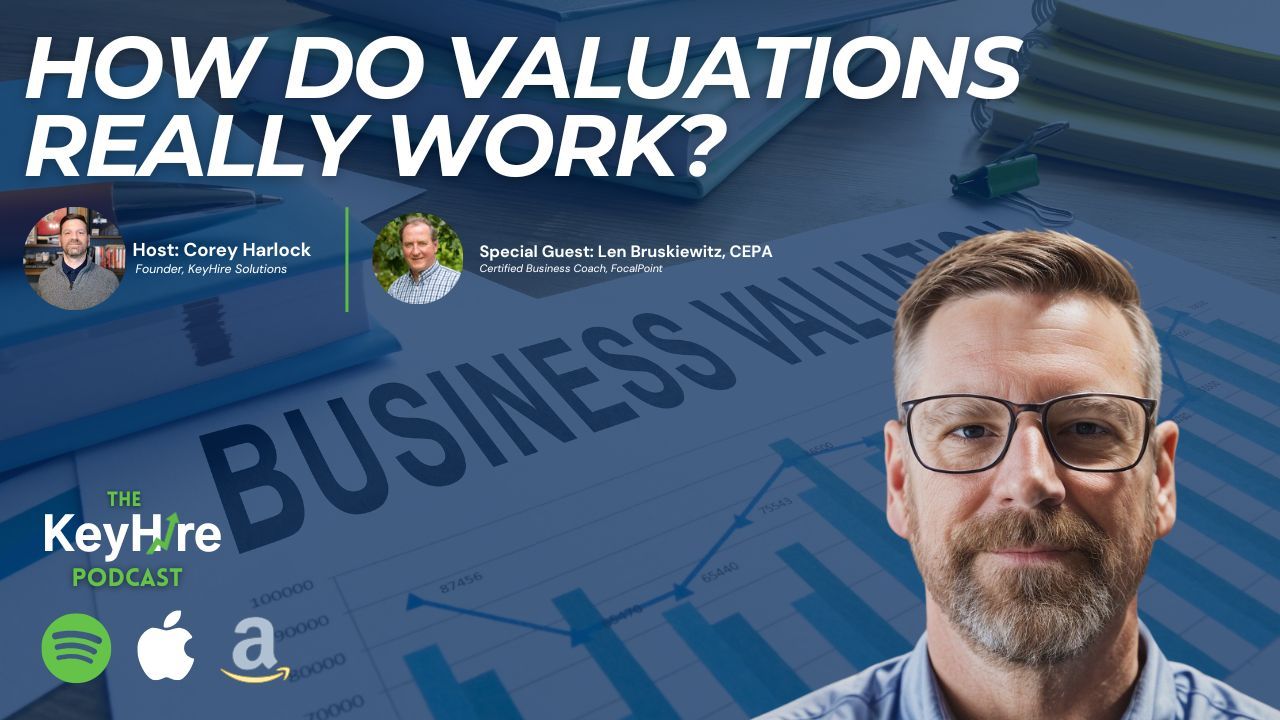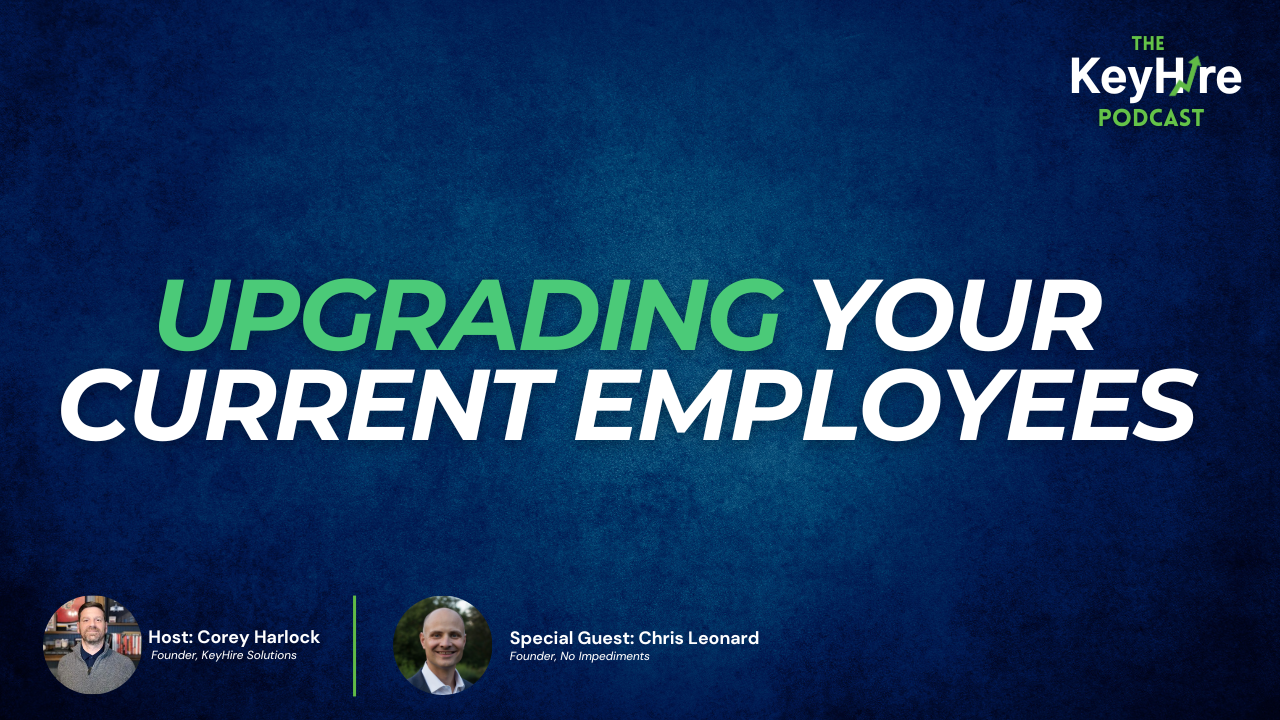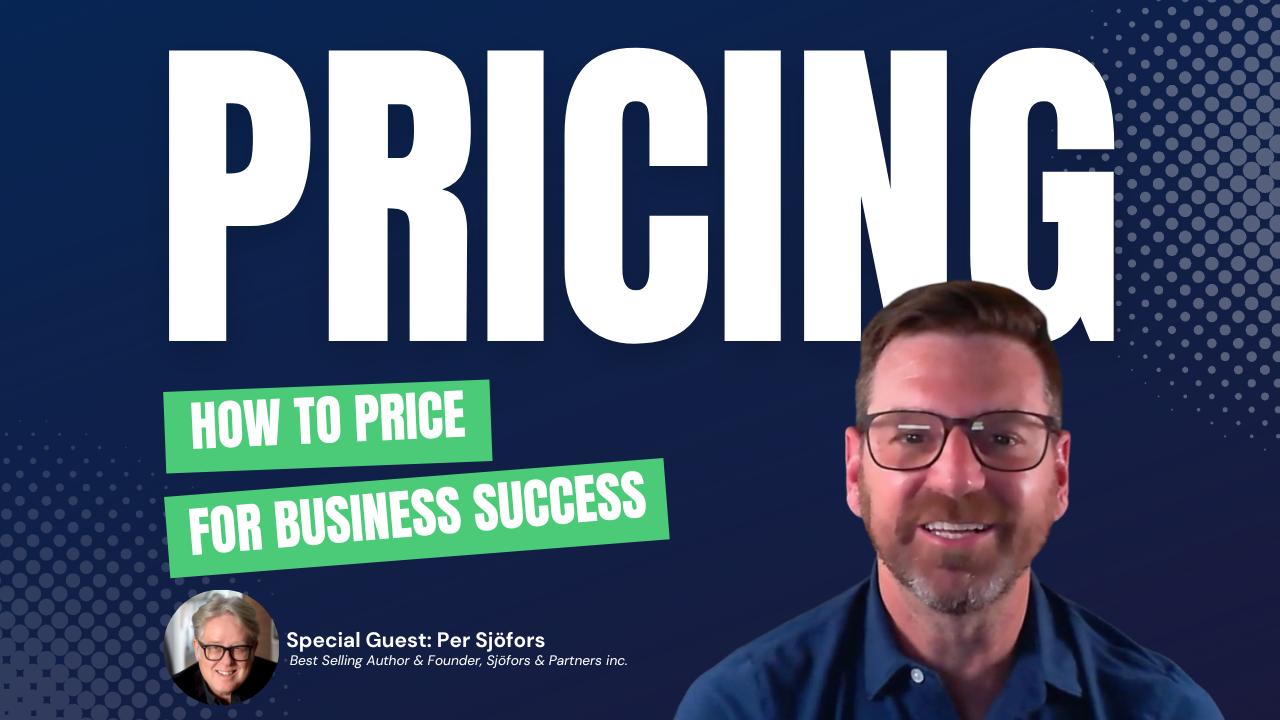How Business Valuations REALLY Work

Are you thinking about selling your business? If so, you’ll need to get a valuation, and that process can seem like voodoo to the average business owner. Understanding what goes into a business valuation, the factors that impact your company’s worth, and common misconceptions can help you prepare for a successful sale.
Corey Harlock sat down with Len Bruskiewitz, a business coach and exit planning advisor, to demystify the valuation process.
What is a Business Valuation?
Simply put, a business valuation is what a potential buyer is willing to pay for your company. The key takeaway? You don’t set your business’s value—the market does. While there are different valuation methods, the most common for small businesses is a multiple of earnings (specifically, EBITDA—Earnings Before Interest, Taxes, Depreciation, and Amortization).
How Companies Are Valued
Business valuations typically consider two major components:
- 20% External Factors:These are things like industry trends, market positioning, and reputation—elements that are visible from the outside.
- 80% Internal Factors:These are the intangible aspects of the business, including operations, customer base, and leadership structure.
Bruskiewitz explains that the four key intangible factors that drive a business’s value include:
- Operational Structure–Are processes documented? Can someone else step in and run the business without the owner?
- Customer Base & Revenue Model–How diverse is your customer base? Do you have recurring revenue or do you rely on one-off sales?
- Company Culture & Leadership–Is there a strong management team in place, or does everything depend on the owner?
- Team Expertise & Knowledge–Does your team have specialized skills that differentiate your business in the market?
The Most Common Valuation Mistakes Business Owners Make
- Messy Accounting–Poor financial records are a huge red flag for potential buyers. Buyers will conduct forensic accounting, so getting your books in order well in advance is essential.
- Owner Dependence–If your business can’t run without you, it’s not valuable to a buyer. A strong management team is critical to ensure a smooth transition.
- Overestimating Value–Nine out of ten business owners overvalue their companies. Many believe their business is worth 10x revenue when the market might say it’s closer to 3x earnings.
How to Increase Your Business Value Before Selling
If selling is in your future, start preparing now—ideally three years in advance. Bruskiewitz recommends focusing on these four areas:
- Personal Readiness–Define what’s next for you after selling the business, whether it’s retirement, starting another venture,or consulting.
- Business Optimization–Shed unprofitable services, focus on your highest-margin revenue streams, and build a scalable operation.
- Financial & Process Organization–Clean up your accounting, document your key processes, and start tax planning early to maximize post-sale proceeds.
- Leadership Development–Build a strong management team that can run the business without you. If your phone rings constantly while you’re on vacation, your company isn’t ready to sell.
Selling a business isn’t an overnight decision —it requires careful planning and strategic execution. The goal? Leave on your terms, on your timeline, with the highest possible valuation.
If you’re wondering where to start, Bruskiewitz offers a free business valuation calculator on his website, Greater Heights Coaching. In just 15 minutes, you can get a rough estimate of your business’s current value and actionable steps to increase it.
For more expert insights on growing and selling your small business, watch this episode of The KeyHire Small Business Podcast











